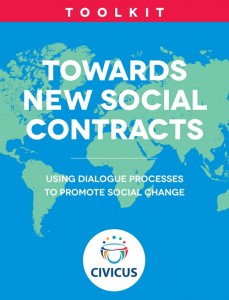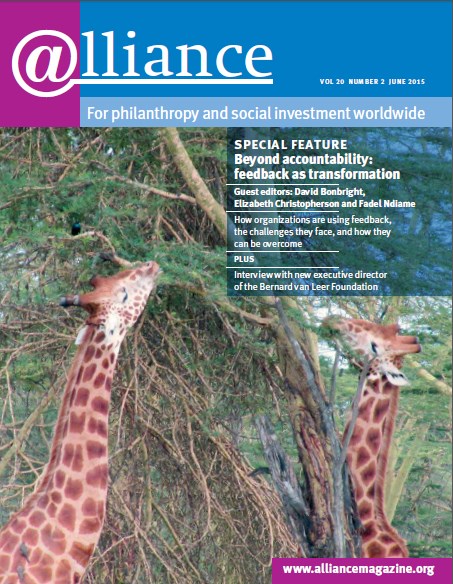The social challenges the world faces today have several causes and different effects, which often take place in rapidly changing social and political contexts. Think, for example, of climate change and inequality. Traditional responses have proved inadequate because they have failed to address the complexity of the issues. Addressing contemporary social challenges requires an approach that is systemic, adaptive and involves all sectors of society.
 Sounds good in principle, but figuring out how to effectively broker collaboration between governments, business, civil society and citizens is difficult. The key lies in having a strong intermediary, who can coordinate stakeholders, navigate bureaucratic obstacles and balance competing interests. To assist with this, CIVICUS has produced a number of capacity-building tools intended to help users facilitate multi-stakeholder dialogues around social, environmental and economic issues. The latest resource in this line of work is the toolkit ‘Towards New Social Contracts’. In particular, the toolkit provides practical examples and exercises to help users:
Sounds good in principle, but figuring out how to effectively broker collaboration between governments, business, civil society and citizens is difficult. The key lies in having a strong intermediary, who can coordinate stakeholders, navigate bureaucratic obstacles and balance competing interests. To assist with this, CIVICUS has produced a number of capacity-building tools intended to help users facilitate multi-stakeholder dialogues around social, environmental and economic issues. The latest resource in this line of work is the toolkit ‘Towards New Social Contracts’. In particular, the toolkit provides practical examples and exercises to help users:
- Formulate simple arguments encouraging civil society and other sectors to work more closely together to achieve a particular change
- Provide guidance on when and how to best approach multi-sector engagement
- Present a basic, flexible methodology to initiate and run multi-stakeholder dialogue processes with insights around some of the key elements for success, as well as common challenges
For more information
The toolkit is available in English at
http://www.civicus.org/images/TowardsNewSocialContracts.EN.pdf
French and Spanish versions are also available






Comments (0)